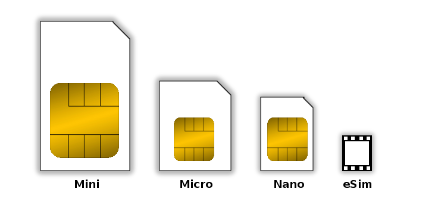What is eSIM?
For network carriers to provide access to their network, they need to identify and authenticate users. They are able to carry out that authentication using information contained in “subscriber identity modules” otherwise known as SIM. The eSIM, as the name implies, is an electronic/embedded SIM. It is a smarter technology developed by GSMA, the world’s leading wireless industry representative body. It allows the secure transfer of user information between network carriers for user authentication. While earlier SIMs were issued by each carrier and contained a particular users information, the user information on eSIMs aren’t restricted to one carrier and can be easily transferred securely. They are currently used not only on phones but on other connected devices: smartwatches, cameras, cars, electric/water meters etc. Apple and Google are some of the big phone manufacturers with mobile devices that support eSIMs.
What are the benefits of eSIMs?
Users of mobile devices will now be able to just select a preferred carrier directly from their device instead of having to change SIM cards or requesting a SIM swap. This makes switching carriers much easier. No need to carry extra SIM cards in your wallet or purse, you can switch on the fly.
For manufacturers of mobile devices, the extra space saved from removing the sim tray could be used to make devices slimmer or include slightly bigger batteries. In wearables, eSIMs take up very little space in the device. Because eSIMs are able to withstand more heat and vibration than normal SIMs, they will function better in engines and other smart devices prone to heat and vibration.
How soon before we have eSIMs in Nigeria?
There are only a handful of countries with carriers that support eSIMs:
- Austria
- Canada
- Croatia
- Czech Republic
- Germany
- Hungary
- India
- Spain
- UK, and
- US
Unfortunately, no network carrier in Africa supports eSIMs yet. Though MTN South Africa and Vodacom in South Africa hinted at working with mobile phone manufacturers, including Apple, to provide support for their devices. Since MTN also operates in Nigeria, one hopes that MTN Nigeria will also follow suit and support eSIMs.
Featured image source: www.xxsim.com

